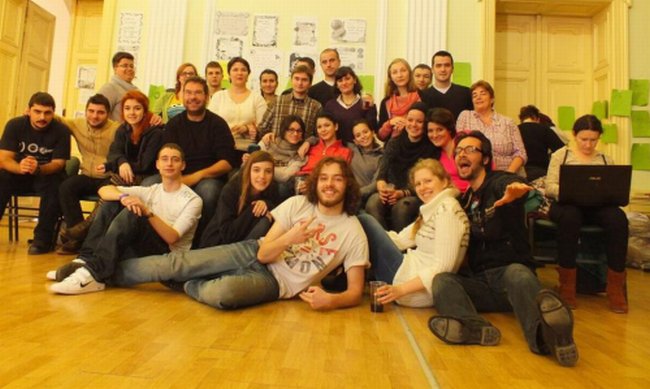Actually, my first international training course was in Arad, Romania. Because this training course was consisted of paticipants who had different knowledge in terms of mentoring and volunteering, I am especially satisfied that the training started exactly with explanation about the meaning of the term EVS. I had the opportunity to learn about the role of mentors in different areas, such as: social, geographical, economic, educational area, culture, health, etc. We all agreed that there should be a basic coordination between volunteer- mentor and mentor- national organization and also, we have certain debates about what kind of approach should have mentor to volunteer during the implementation of an EVS project. Does mentor should be approached with an open communication and open issues, or approaches to reflective communication (mentor shouldn’t preform with open-ended questions if it perceive that the volunteer is not ready, volunteer should be allowed to make the first step, to start with the conversation. Each of them, are required to have high level of understanding and an internal connection). Mentor have to be prepared to give a right direction to volunteer, to provide options and opinions without offering a final solution. Simultaneously, they have to give maximum motivation and have to provide assistance to increase self-esteem, if there is a need for all of that. Tolerance, as well as day-to-day support, also have a key role to set a good friendly relations between the two sides. To establish such friendly relations, they have to eliminate barriers that may occur during everyday communication. Various barriers in communications are: different agenda; emotions; stereotypes; previous, already past events; environment; statute and lack of trust. The main orientation of the volunteer is to acquire knowledge in a EVS project, which later will be able to implement it in their own country in order to improve and to made successful execution of the work. To be able to improve their position volunteers need to be open for cooperation with the supervisor mentor, in this context particularly are important body language and eye contact. Preparing and setting up possible solutions for the integration of disabled people in society (team work). We had the opportunity to consider various forms of evaluation. Also, we discuss about the term Youthpass. Youthpass actually represents a certain type of diploma or certificate obtained as a confirmation, or proof of activity. Depending on the host country, the certificate can be written in first or third person (comparison of correctness of writing). I especially like the organization of the training course, without classical lectures, whole program organized and funded by working in groups and free expression of our own different opinions and views. Sharing different experiences between the participants as a result of a variety of placements (EVS volunteers, mentors, other people who are attending training courses etc). Also, there were some interesting games called energisers for encouraging greater energy in the overall organizational process. Before I go on this training course, certainly I set myself two goals. One of them was to have gained with more knowledge as possible in terms of mentoring vs. volunteering, and on the other side, the second goal for me was to implement high level of comunication and friendly relation with all participants, as well as with members of organization. I have only one conclusion. I am very happy that in the end I managed to achieve these goals. Real treasure for me- spreading friendship, exchange of experiences, acquisition of new knowledge. Thanks to the host organization and my national (sending) organization. My immense gratitude for the given trust !!! Written by: Sanja Ivanovska

